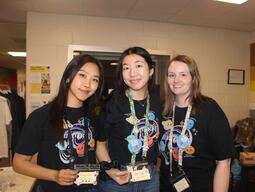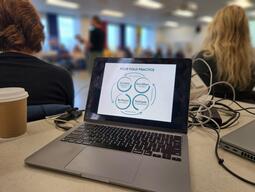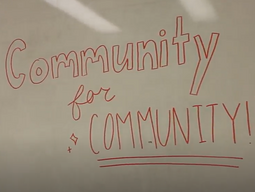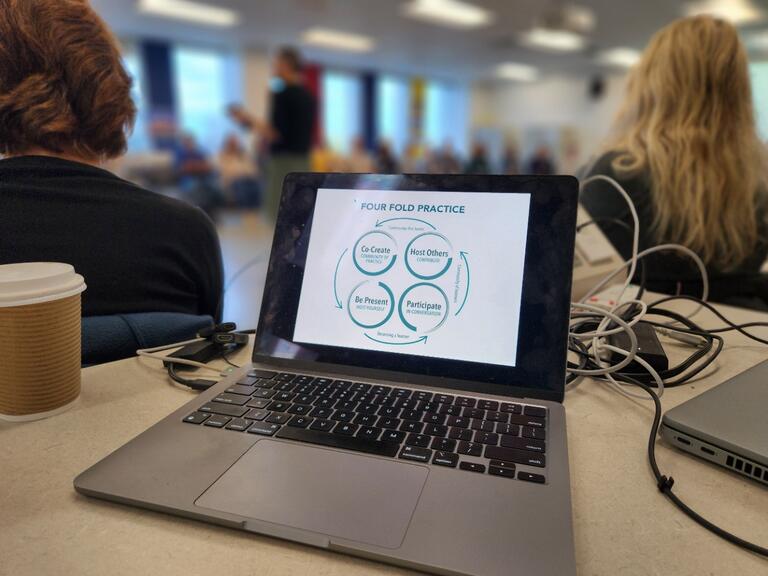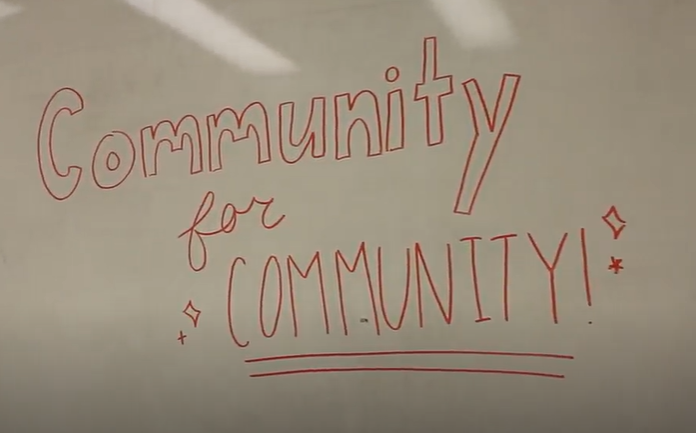In an era marked by rising hyper-individualism and the pervasive notion that “you don’t owe anybody anything,” the need for genuine community has become not just aspirational, but essential. The prevailing narrative encourages us to prioritize self-preservation and personal growth above all else, often at the expense of meaningful relationships. I find myself deeply aligned with cultural critic Rayne Fisher-Quann’s reflections in her essay “No Good Alone,” where she critiques this modern tendency to sever ties with others in pursuit of an idealized version of “self-optimization.” Her work challenges the allure of hyper-independence, which masquerades as empowerment but ultimately leaves us fragmented and disconnected. As she insightfully observes:
Somewhere between hyper-capitalist motivation videos, pseudo-spiritual tweets, and Instagram therapy infographics, a predominant mental-health narrative has emerged on the internet. It takes many forms, but is perhaps best defined by its penchant for isolation: it begs you to ‘focus on yourself,’ to ‘protect your peace,’ to sever relationships that don’t serve you and invest your newfound time and energy into self-improvement. Seductively, it whispers that you ‘don’t owe anyone anything.’ It glamorizes—and moralizes—a life spent alone.
A frictionless life, free of obligation and entanglement, may seem ideal—but this pursuit of individual ease often becomes the root of our collective disconnection.
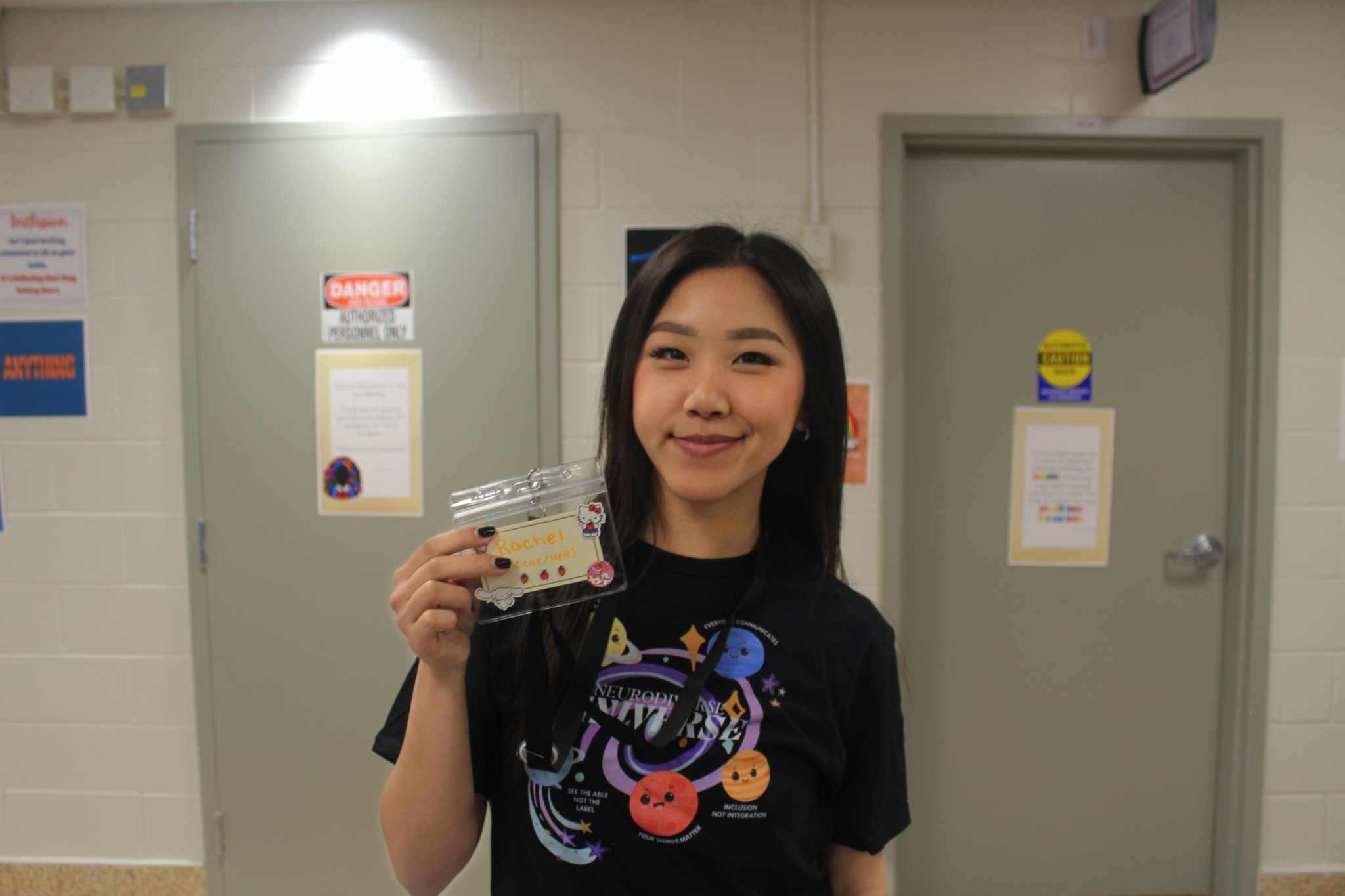 Rachel Su, holding up her nametag at Neurovibes 2025.
Rachel Su, holding up her nametag at Neurovibes 2025.
When I first stepped into the role of Support and Video Creation Lead for the Centre for Community Engagement and Social Change, I was simply looking for a creative outlet and an opportunity to contribute to the faculty in a meaningful way. I hadn’t fully grasped what it meant to engage in community-based research. After all, isn’t all research community-centered, at least to some degree, with the goal of fostering social change? Especially within the Faculty of Education, this distinction seemed almost redundant.
However, as I immersed myself in my role—curating a promotional video that involved interviewing faculty members about the centre’s impact—I came to realize just how vital this work is. Witnessing the passion and conviction in researchers’ eyes as they spoke about their projects transformed my perspective in ways I hadn’t anticipated. It was a moment of radical clarity.
In a world increasingly dominated by isolationist ideologies, the centre’s work stands as an unintentional act of revolution. It fosters long-lasting relationships with underserved communities, creating a space where mutual growth and feedback thrive. People and their perspectives challenge us, grounding our work in lived realities and reminding us that true scholarship carries stakes. Reciprocity is about believing in the transformative power of love and community as a redemptive force. Sustainable change and authentic community building are the frontiers we must collectively pursue—and I feel profoundly privileged to play a small part in this movement.
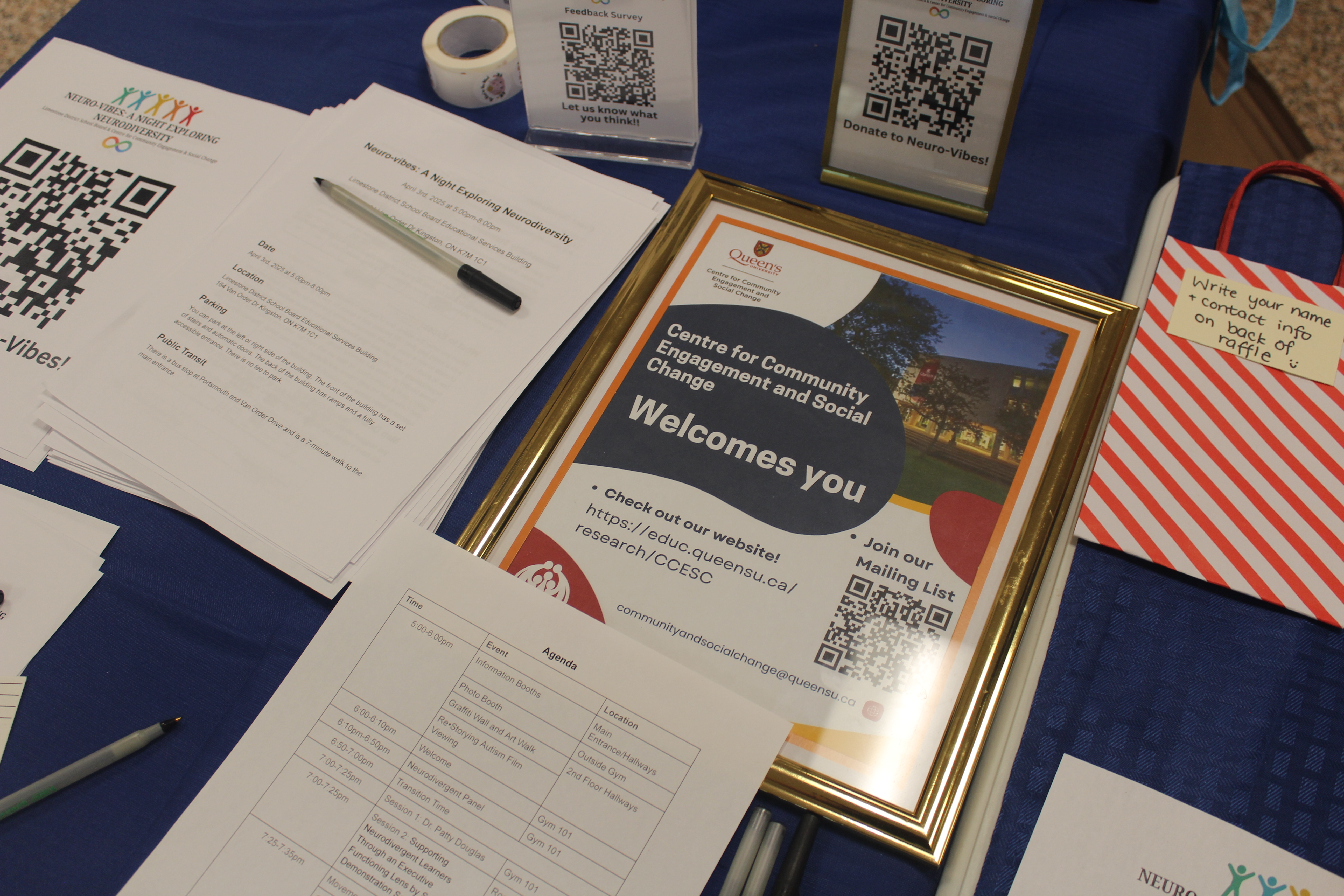 Registration and Information Table at Neurovibes 2025.
Registration and Information Table at Neurovibes 2025.
